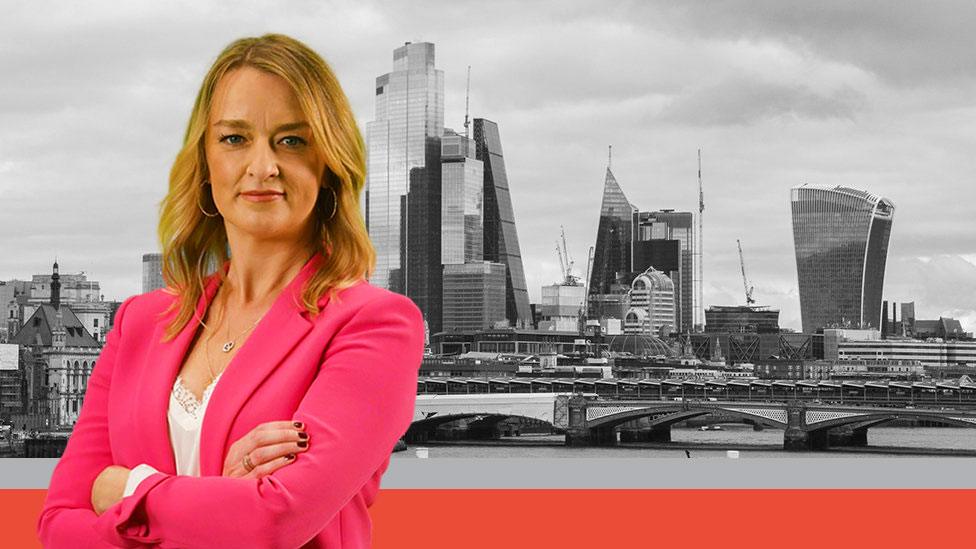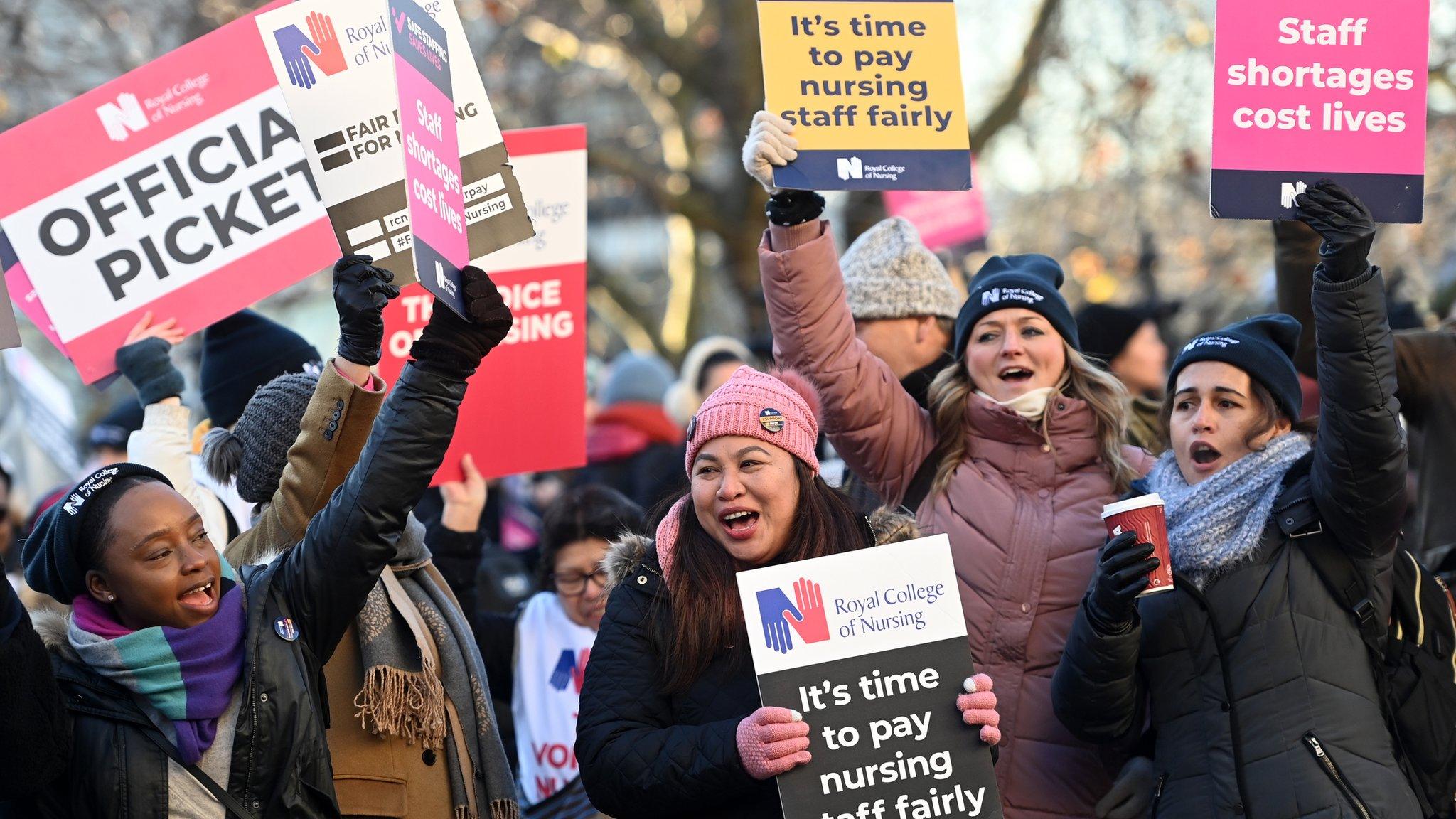Minister refuses to commit to following pay board advice
- Published
Watch: Financial secretary Victoria Atkins quizzed on public sector pay
Treasury minister Victoria Atkins has refused to say if the government will follow its pay review bodies' advice on salary rises for public sector workers.
Speaking to the BBC's Laura Kuenssberg, she said other ministers were considering the recommendations and would make a decision in "due course".
The pay review bodies provide advice on workers' salaries including doctors, teachers and the police.
The guidance is not legally binding and ministers can ignore the advice.
Below-inflation pay rises have led to strikes across the public sector hitting schools and hospitals.
The BBC understands that at least two pay review bodies are recommending increases below the rate of inflation - but higher than last year's awards.
Currently inflation - the rate at which prices are rising - stands at 8.7% but food inflation on items such as bread and chocolate stands at 18.3%.
Asked if the government would abide by the advice, Ms Atkins said she hadn't seen the recommendations but ministers would look at them "very carefully".
However, she warned that the decisions were being made at a time when the UK was facing "very strong inflationary currents".
Government ministers have repeatedly argued that high pay rises could fuel further inflation and damage the UK economy.
Questioned on pay rises on Saturday the prime minister said: "It would be incredibly short-sighted of the government to do something that might sound great today but ultimately just make the inflation problem worse for everybody in the long run."
Trade unions have warned that, without action, workers will quit the public sector for better paid roles elsewhere.
Dave Penman, head of the FDA trade union which represents senior civil servants said: "Last year the government hid behind the pay review bodies, now the bodies are recommending higher pay increases they are planning to ignore them. This will only end in further disputes that are entirely avoidable."
Asked if the government had any plans to introduce tax cuts, Ms Atkins said: "We do not have the headroom at the moment to look at tax cuts.
"But as soon as we can, as soon as we have taken the measures that we are taking to reduce inflation, then we will be able to start having those conversations."
Appearing on the same programme, shadow chancellor Rachel Reeves said Labour would "not play fast and loose" with the nation's finances, if it returned to power after the next general election.
She said she was confident the party could meet its pledge to borrow money to fund green policies - but only if it didn't conflict with her fiscal rules.
In 2021, Ms Reeves had promised to invest £28bn a year, every year up to 2030, on projects such as offshore wind farms, planting trees and developing batteries.
However, earlier this year she watered down the plans, saying instead that a Labour government would ramp up investment over time, aiming to reach £28bn a year after 2027.
Shadow chancellor Rachel Reeves: UK needs to get a grip on its debt
Asked if she would fulfil the pledge, Ms Reeves said she was "confident" but added that it was subject to her limits on spending.
"Debt is now the same size as our whole economy - we've got to get a grip of that," she said.
The shadow chancellor insisted that Labour's spending plans were "not on the same track" as the Conservatives, pointing to her policy to scrap the non-dom tax status as an example of how her party differed from the government.
Nicola Headlam, a chief economist at Red Flag Alert, a business intelligence company, told BBC Radio Five Live that "bearing down" on public sector workers and not meeting the recommendations of the pay review bodies was not the answer because other people in the workforce earn more.
"If you're a public sector worker, you're paying a mortgage, you've still got to pay the prices you see in the supermarkets.
"You've got a triple impact on you - thunder, lightning and rain and there are some other people with a larger umbrella who are still stoking inflation.
"We're starting to run out of good choices and it's because of a lack of growth in the economy, because of this inflation we seem to be unable to get a handle on, because of rising interest rates. It really is very, very difficult."
- Published8 July 2023

- Published7 February 2023

- Published22 June 2023
